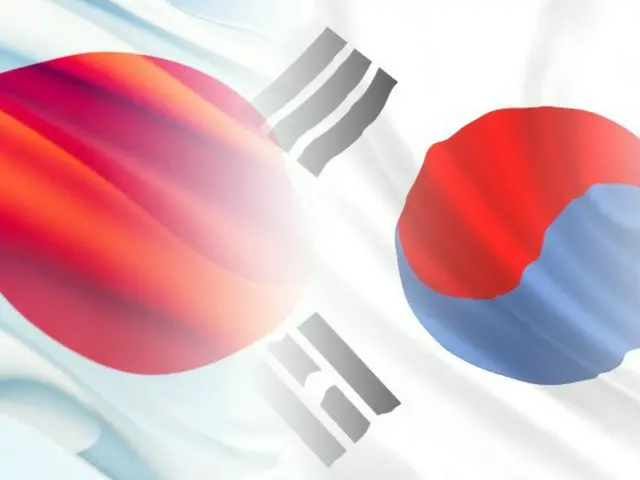In his speech, he did not mention Japan's aggression against Asian countries. The day before, Prime Minister Kishida announced that he would not run in the LDP presidential election scheduled for September. South Korean media also reported the news, and President Yoon Seok-yeol
He also mentioned diplomatic achievements such as the improvement of Japan-Korea relations, but on the 15th, in connection with his announcement that he would not run in the presidential election, he wrote, "Kishida will end his term without any reflection on the past" (Seoul Shinmun) and "Kishida to resign, 'reflections' again"
"(omitted)" (Kokumin Nippo) and other media reported. Prime Minister Kishida held a press conference on the 14th and announced that he would not run. The LDP is facing a strong headwind from public opinion over the political funding issue of party factions, and Prime Minister Kishida said, "
"I decided that the first step to show that the LDP has changed is for me to step aside and not run for the presidency," he said, explaining his reasons for not running.
"I want to draw a line under this and move on to the presidential election," he emphasized. Prime Minister Kishida will step down when his term as president expires at the end of next month. The Kishida administration, which was launched on October 4, 2021, will end after about three years.
Prime Minister Kishida's sudden announcement that he would not run for the party presidency sent shock waves throughout Japan, but the news was also reported by South Korean media. Yonhap News reported that "the approval rating of the Kishida Cabinet has dropped to 10-20%."
The party's approval rating remained at 0%, and he was under pressure from both inside and outside the party to step down," he said, explaining the background that led to Prime Minister Kishida announcing that he would not run in the party leadership election.
Meanwhile, News 1 said, "The chemistry between President Yoon and Prime Minister Kishida, which was the core of the improvement of relations, will also be lost, and there is a possibility that Japan-Korea relations will cool again."
The Munhwa Ilbo also reported, "With US President Biden withdrawing as a presidential candidate, and Prime Minister Kishida also stepping down, there are concerns that this will have a negative impact on cooperation between the three countries of South Korea, the US and Japan."
In an editorial published on the 15th, the paper also noted the changes in leadership in both Japan and the United States, stating that "the South Korean government must quickly prepare alternatives due to the decline in leadership in both countries."
Japan-South Korea relations have improved to a certain extent under Prime Minister Kishida and President Yoon. In March of last year, the Yoon administration agreed to a settlement of the former forced labor lawsuit issue, which was the biggest issue between Japan and South Korea.
This led to improved relations, and the two leaders re-visited each other through "shuttle diplomacy" and the "Japan-Korea Security Dialogue" between foreign and defense authorities was also resumed.
On the 14th, a South Korean official from the Ministry of Foreign Affairs stated that even if Prime Minister Kishida, who worked with President Yoon to improve Japan-South Korea relations, resigns, the two countries intend to continue to work toward developing the relationship.
On the 15th, the day after Prime Minister Kishida announced that he would not run for the party presidency, Japan celebrated the anniversary of the end of the war and South Korea celebrated Liberation Day. On that day, Prime Minister Kishida attended the National Memorial Service for the War Dead held at the Nippon Budokan in Chiyoda Ward, Tokyo.
He attended the ceremony. In his speech, he said, "We will never repeat the horrors of war. 79 years have passed since the end of the war, but no matter how much time passes, we will continue to carry on this resolute pledge across generations."
There was no mention of the responsibility of Asian countries for the war victims. At the memorial ceremony, the responsibility of Asian countries was mentioned clearly in the speech by then Prime Minister Shinzo Abe in 2013.
Following Prime Minister Kishida's speech, the Korean media reported that "Prime Minister Kishida, who declared the day before that he would not run in the presidential election, will attend this memorial service for the third time at the end of his term, and will continue to speak about the war against Japanese imperialism, just as he has done in the past."
"(The Kokumin Ilbo) also reported critically that Prime Minister Kishida made no reference to the historical facts or remorse for the war crimes committed during the war. In addition, various media outlets reported that Prime Minister Kishida made a sacred offering to Yasukuni Shrine on the same day, while the Mainichi Keizai Shimbun reported that,
While reporting that 77 cross-party Diet members had visited Yasukuni Shrine that day, the article also pointed out that the "next prime minister candidate" who is expected to run in the LDP presidential election "had joined the procession to pay his respects."
South Korea has raised concerns about visits by cabinet ministers to the shrine, as it is the home of 14 men deemed "Class A war criminals" at the International Military Tribunal for the Far East (Tokyo Trials).
2024/08/16 11:52 KST
Copyrights(C)wowkorea.jp 2

